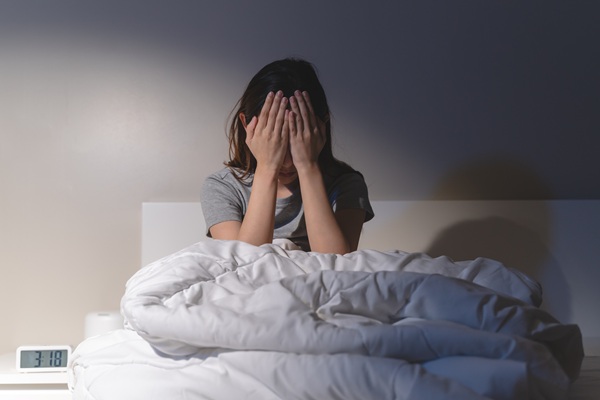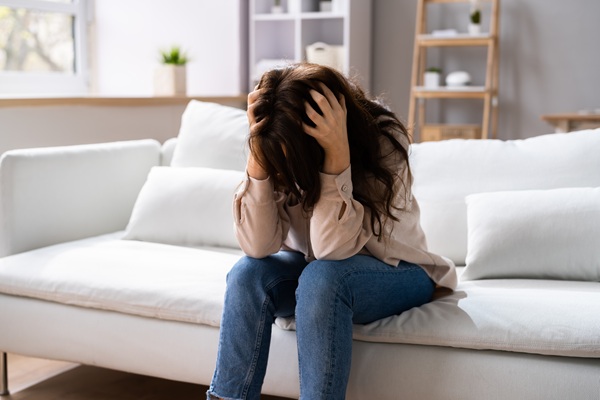What Does Depression Therapy Entail?

Looking for information on depression therapy? Read on to learn more. Seeking depression therapy is an appropriate measure to take when suffering from sad thoughts, an unexplained lack of energy, and other negative symptoms associated with how one feels. Depression is a very common condition; it can be debilitating and affect one's work, home, and social life. Depression therapy is one way to treat the underlying causes of why someone has persistent depressive symptoms.
Common symptoms of depression
Some people associate sadness with depression, and this is indeed one of the symptoms. However, depression shows up in a wide variety of ways, and knowing what the signs are may help someone seek the necessary treatment. Some common symptoms include the following:
- Feelings of sadness and frequent tearfulness
- Irritability
- Hopelessness
- Sleep disorders
- Loss of interest in daily and social activities
- Fatigue
- Weight loss or gain
- Feelings of worthlessness
People should seek depression therapy if these symptoms occur or linger for more than two weeks at a time. Additionally, even if the symptoms come and go, it is advised to consult with a psychiatrist as there might be other mental health-related conditions going on. The psychiatrist can take the necessary measures to determine what type of treatment is required. For depression therapy, there are a number of approaches. Continue reading to find out more.
Types of depression therapy techniques
When some people think of therapy, they may envision a lot of talking. However, depression therapy involves a lot more, because psychiatrists help treat depression using various techniques to help clients recover from mental illness and create fulfilling lives. Outlined below are a few of the approaches that a psychiatrist might take to treat depression.
Behavioral
The idea behind behavioral therapy is that new learning can fix a problem caused by certain behaviors. This therapy technique involves action to change behaviors that negatively affect emotions, including taking part in activities that enhance good and positive feelings. For example, those that are depressed may be encouraged to engage in positive activities to improve behaviors that might be having a negative impact on their life.
Cognitive
This type of depression therapy focuses on the thoughts that affect emotions. Some people get caught in depressive thoughts, and this type of depression therapy helps people identify negative thinking and gives them tools to change these thoughts into more positive ones. Ultimately, this helps to improve negative thoughts and feelings, while uplifting one's overall mood. Cognitive and behavioral therapies are often used together to combat depression.
Dialectical behavior
The goal of dialectical behavior therapy is to teach depressed people the skills necessary to control emotions, cope with stress, and improve interpersonal relationships. The psychiatrist is also often on hand to assist someone when help is needed to handle a challenging situation.
Interpersonal
Sometimes, people are depressed due to inadequate social support or conflicts with others. Interpersonal therapy is a type of depression therapy that delves into relationships with family members, friends, spouses, and co-workers. Therapy may involve role-playing to improve communication. Additionally, psychiatrists recommend group therapy involving those who share interpersonal problems with the individual being treated.
Psychodynamic
Childhood experiences or even past situations can often result in depressive moods and episodes. Long-term, without the necessary treatment, one may suffer from chronic depression due to these conflicts or unresolved problems.
Psychodynamic therapy helps individuals to become more aware of troubling and contradictory emotions. This approach helps to put these situations into a different perspective. Unlike some other depression therapy techniques that are more goal-focused and short-term, this method has a more general and long-term focus.
General psychotherapy treatment for depression
More generally speaking, those that require depression therapy will visit a psychiatrist to undergo treatment. This may involve a number of things, ranging from taking medication to discussing one's emotions and feelings. Those that suffer from depression may also experience or have experienced problems with drug and alcohol abuse. In these cases, the psychiatrist will also administer a separate treatment that might involve the help of other medical professionals. All in all, one can expect depression therapy to involve multiple aspects and to be treated with different approaches as necessary.
Do you suffer from depression?
People who suffer from depression should seek help as soon as possible, as it can lead to serious health issues and even suicide. Depression therapy can be helpful when someone is seeking long-term healing from depression. Contact our psychiatry office today to schedule an appointment.
Get more information here: https://www.hopetmsofny.com or call Hope TMS and Neuropsychiatric Center at (646) 578-8152
Check out what others are saying about our services on Yelp: Read our Yelp reviews.
Recent Posts
Insomnia disrupts sleep patterns and negatively affects overall health, leading to fatigue, difficulty concentrating, and emotional distress. This condition can result from chronic stress, anxiety, depression, or medical issues that interfere with the body's natural sleep cycle. A psychiatrist can help diagnose and address insomnia, providing tailored treatments focusing on mental and physical well-being.Insomnia is…
Relationship obsessive-compulsive disorder (ROCD) is a distinct subtype of OCD that can cause persistent doubts and distressing thoughts about romantic relationships. OCD treatment can help individuals manage their intrusive thoughts and compulsive behaviors associated with ROCD. Understanding and having access to the available treatment options can help individuals regain control over their thoughts and the…
Smoking cessation is one of the best things a person can do for their health. Still, despite the ill health effects of smoking and the clear benefits of quitting, many people find it nearly impossible to quit on their own. If you are finding it hard to quit, gain insight into why you may be…
Transcranial magnetic stimulation (TMS) is a cutting-edge treatment that offers hope for people dealing with depression and anxiety, especially those who have not found relief with medication or therapy. TMS is a non-invasive procedure that uses magnetic fields to stimulate specific areas of the brain involved in mood regulation. This innovative approach is helping many…


